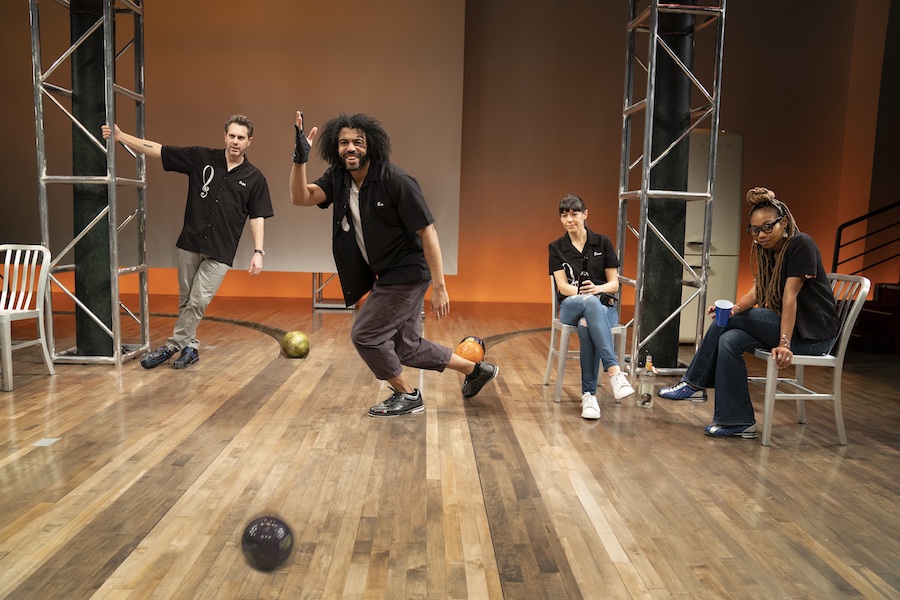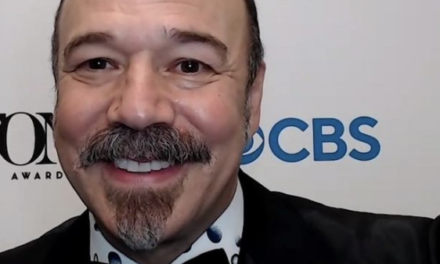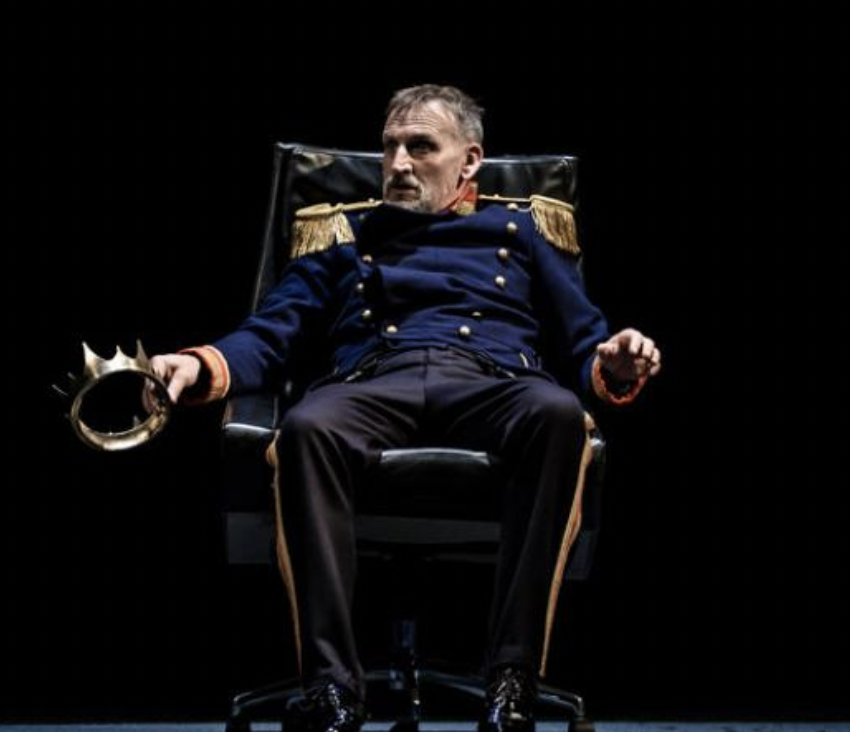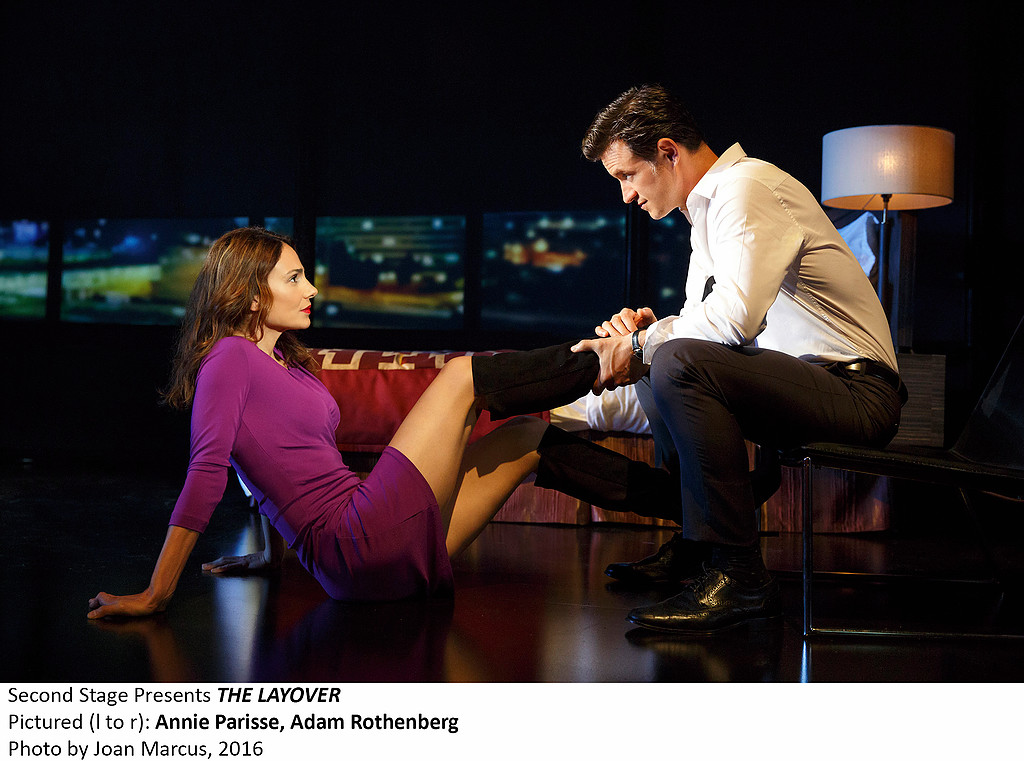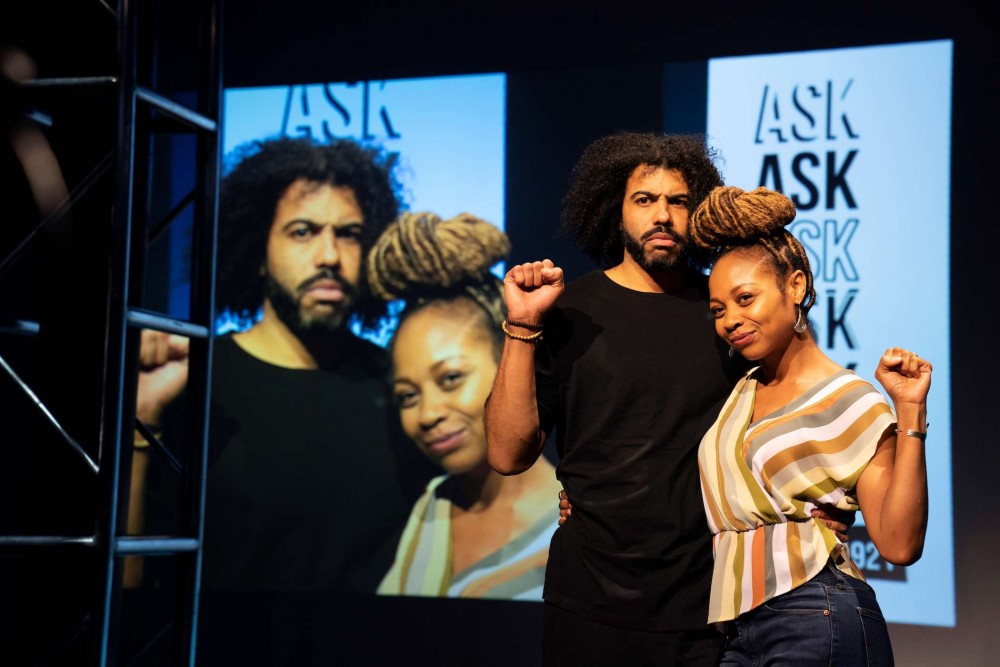
Daveed Diggs, Sheria Irving
by Carol Rocamora
It’s a play with an outrageous premise—and Suzan-Lori Parks wants it that way. As a playwright who has been writing about race and American history for decades, her agenda grows more urgent with every innovative new play she writes.
White Noise, now at the Public in a smashing new production directed by Oskar Eustis, sets a new standard in shocking premises. It features two mixed-race couples, both educated professionals and sophisticated urbanites. They’ve been best buddies since college, where they formed a rock band and enjoyed a mutual passion for bowling. Their relationship reaches a crucible, however, when Leo (a black artist) is roughed up by police on a routine midnight walk. Deeply traumatized, Leo turns to his best friend Ralph (a white college professor) with an inconceivable request. Will Ralph buy Leo as a slave, in return for Ralph’s protection in a white, racist society?
At this point, you’ve probably stopped reading in amazement—as we in the audience did when we heard this unbelievable request. Yet that’s exactly what happens. Ralph (independently wealthy from the bowling alley business he’s inherited) agrees to “buy” Leo and “make him his property”—in return for paying Leo $89,000 plus reimbursement for his student loans.
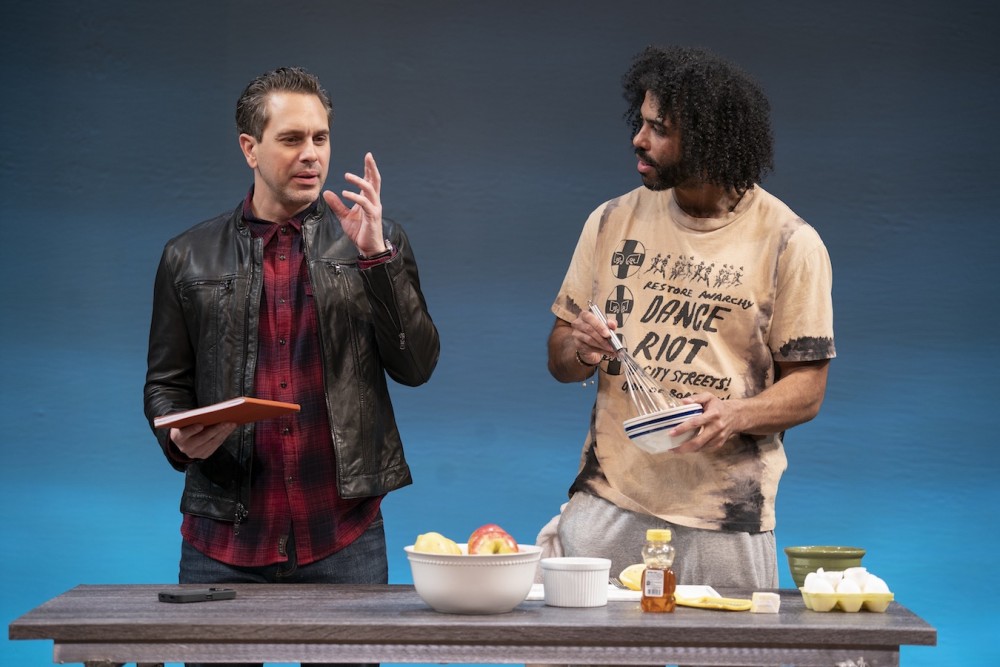

Thomas Sadoski, Daveed Diggs
And so begins a 40-day siege (the Biblical reference is intentional) wherein each character undergoes a radical transformation, testing their loyalties, values, and above all, their identities. Interspersed between the ensemble scenes are monologues, in which each character articulates his/her innermost thoughts along this harrowing journey. To the audience’s alarm, all but Leo sacrifice their principles. Ralph becomes the stereotype of the white supremacist. Misha, his black partner and host on a TV show called “Ask A Black,” exploits Leo’s new identity to popularize her program, causing her ratings to soar. Meanwhile Dawn, Leo’s white partner, is an upwardly mobile liberal lawyer whose current case (defending a black teenager guilty of a crime) garners her fame and a newer, better job. And so on. All profit from Leo’s newly chosen identity. That is, except Leo.
Parks is a writer who dares to tackle big ideas and themes without simplifying them. In writing about racist America, the history of slavery, and black identity, she fearlessly embraces the complexity of the issues. “Nobody is to blame and everybody is complicit,” says one of her characters in White Noise. It’s a profound insight, and the result of years of exploring these themes (from Topdog/Underdog to Father Comes Home from the Wars, etc.).
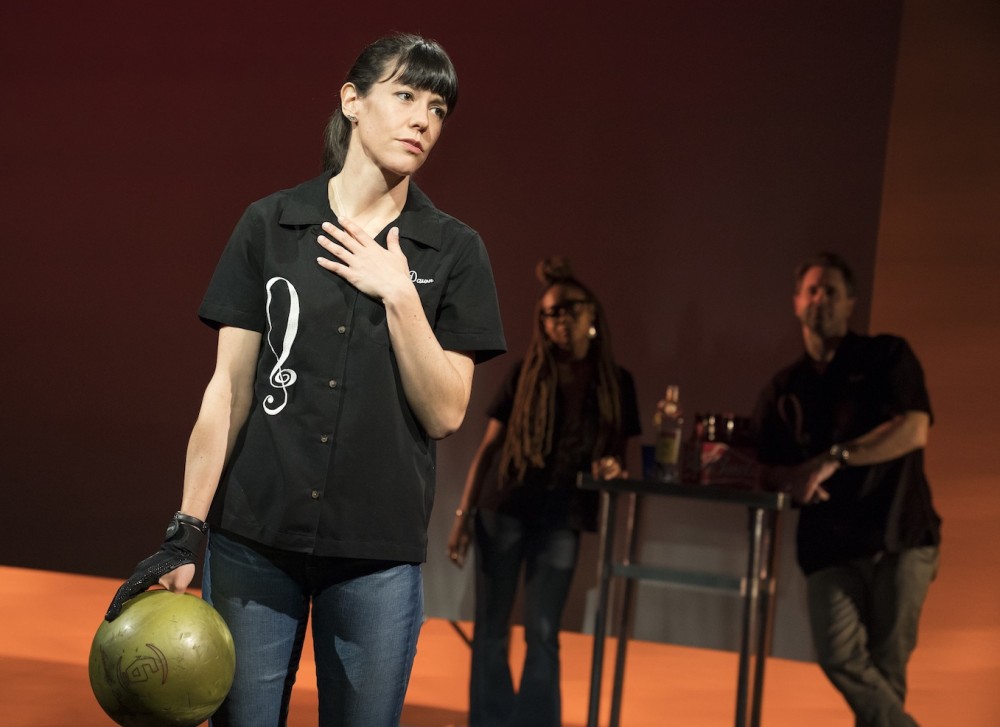

Zoë Winters, Sheria Irving, Thomas Sadoski
There are numerous encounters among the quartet members over this three-hour-long drama, building to a devastating stand-off on the final day (Day 40) of Leo’s enslavement. Oskar Eustis directs a stellar cast with an expert hand on Clint Ramos’s sleek set, surrounded by video screens (projections by Lucy Mackinnon). As Misha, Sheria Irving segues with chilling ease from an assimilated, educated woman to an outrageous stereotype as the host of “Ask A Black.” As Dawn, Zoe Winters gives an anguished performance as the conflicted liberal lawyer. “At the core of everyone who does good is something less than good,” says another character of her self-deception. As Ralph, Thomas Sadoski undergoes a terrifying transformation from a faltering academic (who wasn’t granted tenure) to a media star who uses his agreement with Leo to write about it, publicize it, and climb the ladder of success and recognition.
At the vortex of this moral maelstrom is Leo, played by Daveed Diggs (of Hamilton fame). His performance is riveting, offering a delicate balance of strength and vulnerability, of dignity and self-awareness, as he struggles along the journey to find his identity. As a black man in a racist society, he’s been tortured since childhood by insomnia and a “white noise” that keeps whooshing in his head. Ironically, it stopped during the early phase of his “forty days of slavery.” But it’s returned, and he confronts its origins at last.
Meanwhile, toward the end of this merciless inquiry into black and white identity in America, Ralph has a realization. “I bought my shame,” he says. Too late.
White Noise. Through May 5 at The Public Theater (425 Lafayette Street, at Astor Place). Three hours, 15 minutes with one intermission. www.publictheater.org
Photos: Joan Marcus


